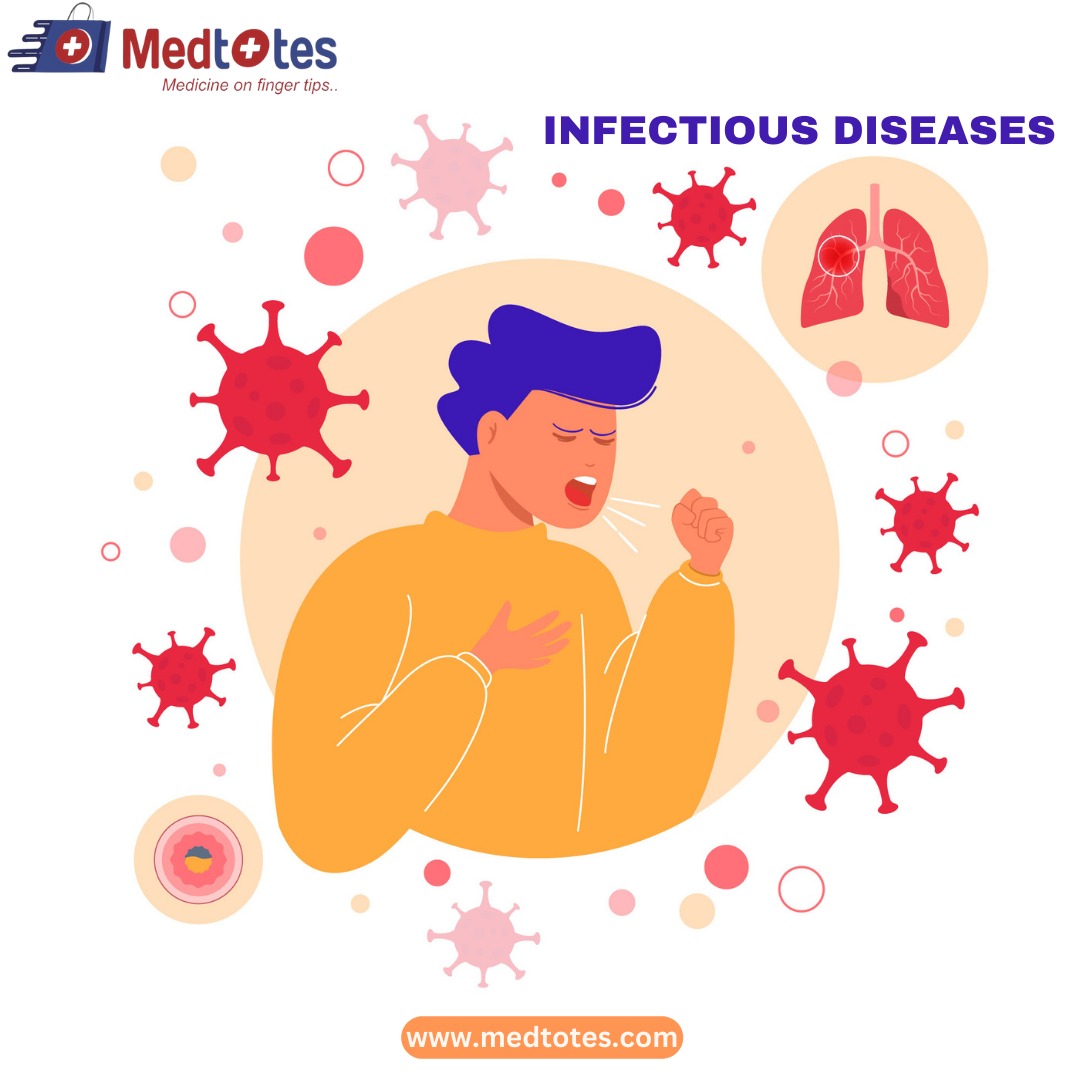Infectious diseases are disorders caused by pathogens (harmful substances) that enter your body. Viruses, bacteria, fungi, and parasites are the most prevalent culprits. Infectious disorders are often transmitted from person to person through contaminated food or drink or insect bites. Some infectious infections are modest, while others are serious. These illnesses are classified into three types: those that produce significant levels of mortality; those that impose large loads of handicap on communities; and those that, due to their rapid and unexpected spread, can have major worldwide ramifications. Infectious infections are a primary cause of death globally, particularly in low-income nations and among children under the age of five. Many of the primary health factors and infectious disease causes are outside the health sector’s direct control. Infectious disorders can be caused by a variety of pathogenic organisms (also known as germs).These organisms include viruses, bacteria, protozoa, and fungi. The vast majority of these species are tiny in size and are commonly known as microbes or microorganisms.
Although bacteria can cause illness, the majority of germs do not cause disease in humans. Indeed, humans are inhabited by a community of bacteria known as the microbiome, which plays critical and beneficial roles in our bodies. Infectious infections can generate a wide range of symptoms. Some are so minor that you may not notice any symptoms at all, while others can be fatal. Some infectious diseases have therapies, but others, such as viruses, can only be treated symptomatically. Although bacteria can cause illness, the majority of germs do not cause disease in humans. Indeed, humans are inhabited by a community of bacteria known as the microbiome, which plays critical and beneficial roles in our bodies. According to WHO research published in 2007, infectious illnesses are spreading faster than ever before, and new infectious diseases are being found at a faster pace than at any other period in history. Over the last five years, the WHO has detected over 1,000 infectious disease outbreaks, including avian flu, swine flu, polio, and cholera. The majority of agents that cause disease in humans are viruses or bacteria, with the exception of the parasite that causes malaria, which is a protozoan.
Several infectious disease types
- Infections caused by viruses
- Infections caused by bacteria
- Infections caused by fungi
- Infections caused by parasites
- TSEs (prion illnesses) are transmissible spongiform encephalopathies.
Infectious illness symptoms
- Fever
- Chills
- Congestion
- Cough
- Fatigue
- Muscle pain and a headache
- GI symptoms (diarrhea, nausea, and vomiting)
The following are some of the reasons behind the difficulties in controlling infectious diseases:
- New infectious illnesses are constantly emerging.
- Old infectious illnesses become more common or spread geographically.
- Old infectious illnesses that were previously under control begin to resurface.
- Bioterrorists might intentionally introduce infectious pathogens.
- Pathogen resistance to existing antimicrobial medicines is increasing.
- Breakdowns in public health systems and international communication.
Methods of preventing infectious illness
- Hands should be washed with soap and water. Hand cleaning is especially vital before making a meal or eating, visiting the restroom, coming into contact with excrement (animal or human), and gardening or dealing with soil.
- When you sneeze or cough, cover your nose and mouth.
- In your home and business, disinfect regularly touched surfaces.
- Avoid contacting or sharing personal goods with people who are ill with an infectious illness.
- While you are ill with an infectious illness, avoid contact with others.
- Do not consume or swim in potentially polluted water.
Conclusion:
Serious problems can still occur, particularly with respiratory diseases. Serious problems are more likely to occur in those with impaired immune systems, although they can occur in healthy people as well. Some illnesses, such as HIV and hepatitis B, are incurable, although drugs can help prevent catastrophic consequences. Sexually transmitted diseases can cause infertility or even cancer, so it is critical to protect yourself and others.
For More Information or Contact…!!!
𝗖𝗔𝗟𝗟: 040 35159159
WhatsApp: 7075490607
𝗩𝗶𝘀𝗶𝘁: https://www.medtotes.com/
Drop us an email at:- support@medtotes.com
Download app:
Android: https://bit.ly/3Q3gQw8
iOS: https://apple.co/3nknQIm

